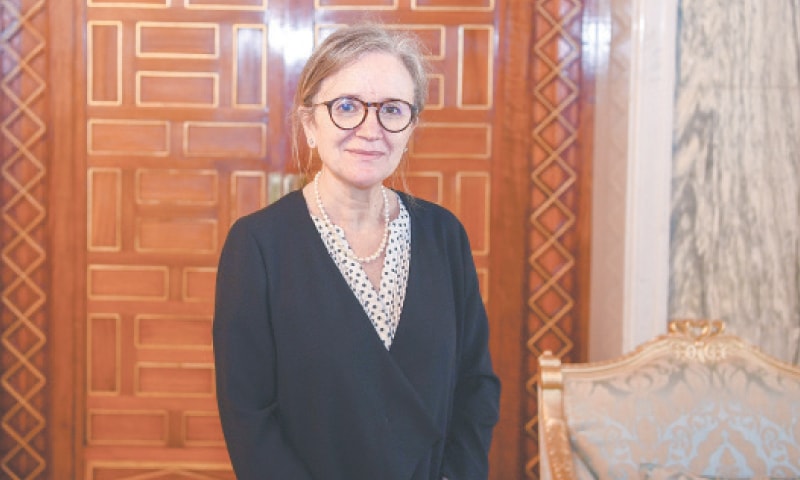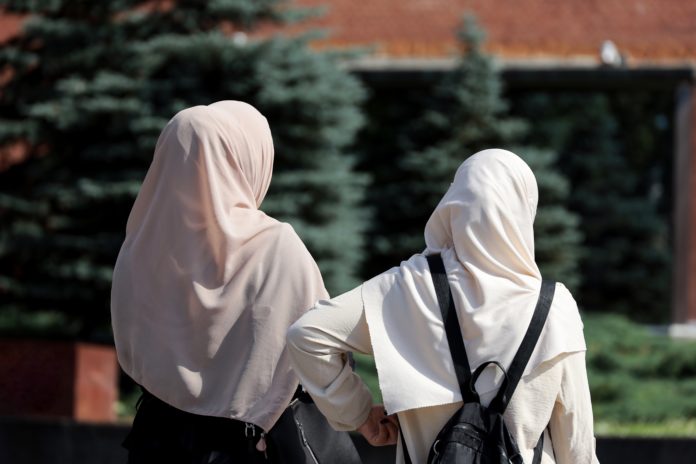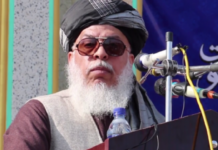Clear majorities across the Arab world believe that women should not play equal roles to men in both the public and private spheres.
According to polling by Arab Barometer, majorities across 12 countries in the Middle East and North Africa agreed with statements such as “men are better at political leadership than women” and “A man should have final say in all decisions concerning the family.”
However, these attitudes seem to be changing compared to previous surveys as younger generations with more liberal ideas become older, as well as an actual shift in perceptions across generations.
In nine out of 12 countries surveyed by Arab Barometer, a majority of citizens agree or strongly agree with the statement: “In general, men are better at political leadership than women.”
This view is most widely held in Sudan (71 percent), Libya (69 percent) and Iraq (69 percent). In only two countries (Lebanon and Tunisia) does the majority of the population disagree or strongly disagree with the statement.
In Morocco the population is evenly split, with 49 percent agreeing or strongly agreeing and 48 percent saying they disagree or strongly disagree.
Tunisia has witnessed the largest increase in the level of disagreement with this statement, which went up by 32 points from 26 percent in in 2011 to 58 percent in 2021.
Subscribe to our newsletter and stay updated on the latest news and updates from around the Muslim world!
The change in Tunisia is particularly striking in light of the appointment of Najla Bouden Romdhane as the Arab world’s first female prime minister. Romdhane was appointed by President Kais Saied after his suspension of parliament.
Overall, 54 percent of Tunisians say they have quite a lot or a great deal of trust in Romdhane, with no significant differences between genders.
Egypt and Palestine, two places in which both a majority of men and women agree that men make better political leaders, saw the second and third largest changes in opinions.

Arab Barometer also examined views of women’s roles within the home. In half the countries surveyed in 2021-2022 (Iraq, Algeria, Libya, Sudan, Mauritania and Egypt), at least six-in-ten agree or strongly agree with the statement: “A man should have final say in all decisions concerning the family.”
Meanwhile, only in three countries does less than half of the population agree (Tunisia, Palestine, and Lebanon).
Citizens were also asked whether they agree with the statement: “Men and women should be separated (should not be mixed) in the workplace.”
In 11 out of 12 countries surveyed, at least half of the population disagrees or strongly disagrees. Lebanese citizens dissent the most with 89 percent disagreeing or strongly disagreeing.
Fewer than a third of citizens in any country surveyed by Arab Barometer agree or strongly agree that a university education is more important for males than females. Mauritania (32 percent) and Sudan (28 percent) are the only two countries in which more than a quarter of citizens agree. Kuwait has the lowest overall level of agreement at 8 percent.
Finally, Arab Barometer asked about violence against women in the community. When asked if violence increased, stayed the same, or decreased, increased was the most common answer in seven out of 11 countries.
In four countries, over half of citizens said violence increased. In the three countries where increased was not the most common answer, most citizens said they thought violence against women in the community stayed the same.
At most, only a third of citizens in any country say that violence has decreased.
Commenting on the survey, Arab Barometer said: “Overall, the opinions of citizens in most countries in the region appear to be trending towards gender equality, despite many ongoing disparities. Views on traditional gender roles within the household persist, even when traditional cultural belief are less relevant to women entering the workforce.
“Governments have many tools in their arsenal to continue to shrink these inequalities. In- creasing access to childcare and public transportation can increase the number of women in the labour force. Additionally, continuing to promote women in public office will likely continue to increase citizen’s confidence in women as political leaders.”























